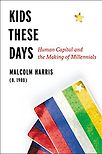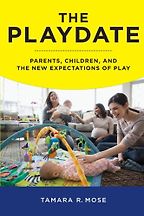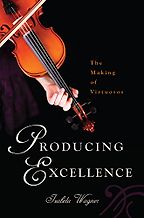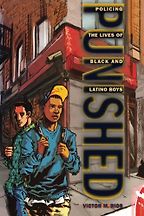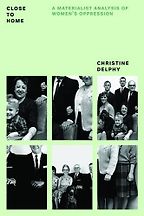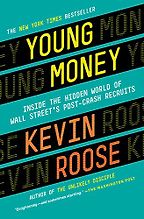So: you’re a Millennial and I’m a Millennial. But for those who don’t know, what is a Millennial?
In my book, Kids These Days, I use the word to describe mostly the cohort born between 1980 and 2000. But it’s not so much a strict definition by birth year as a common experience in terms of the changes to the social and economic systems that we’ve experienced in this country. I write about America, I don’t think I have the expertise or background to talk about the global experience.
In the book, you wrote that “generations are characterised by crises.” What are the crises that have defined Millennials?
Not just crises, but breaks – large social events. The end of the Cold War, the fall of the Berlin Wall, is a big one, which happens halfway through the birthing of Millennials, and marks the beginning of capitalism as the unipolar system of social organisation throughout the world. 9/11 is a big one, and the global War on Terror, and the financial crisis in 2008 is maybe the one that directly allows us to see what Millennials are. But they’re also characterised by trends and changes in trends, and so the rate of exploitation – the growth in the rate of exploitation – is a huge one.
Millennials are a much maligned generation. In the media, they are portrayed as being unwilling to work, lazy or difficult to manage, self-involved and easily offended. Their priorities are, supposedly, in the wrong place: avocado toast over saving for the future. But how would you characterise Millennials?
Well, definitely not as ‘unwilling to work.’ Because Millennials work a lot. Many jobs, in fact: probably more jobs per capita than their parents at the same time, I’m sure.
The biggest trend that explains the millennial character and, I think, by which a lot can be explained is this divergence in the late 1970s, early 1980s between total economic output per worker and compensation. In that break you see a new kind of social organisation where workers are being left further and further behind every year and the capitalist class is distancing itself from the rest of society, very actively.
Between 1981 and 1997, you write, children aged between six and eight saw a 150 per cent increase in time spent studying. Millennials have been working harder to improve their future prospects, but as a generation, their prospects have dimmed. One of the side-effects being a huge jump in anxiety: one study discovered that the birth cohort change is so large that by the 1980s, ‘normal’ children were scoring higher in anxiety than child psychiatric patients from the 1950s. This seems incredible.
Yes, anxiety, depression, and lack of trust are all serious psychological consequences of the environment in which we’ve grown up. They make sense. That’s what Jean Twenge – she co-wrote the research that’s from, I think?
Yes.
What we’re both saying is that the environment in which an age cohort grows up has a real, serious effect on personality development. We have a very messed up environment right now, by any metric. And so it’s not surprising that people are responding to that environment. We look like our world. It does not surprise me that we don’t look so good right now, don’t feel so good.
Maybe we can turn to having a look at your first book choice, The Playdate: Parents, Children and the New Expectations of Play (2016) by Tamara Mose? She frames the playdate as a social occasion which also effectively functions as a networking event for parents. Why have you chosen to talk about this book?
We talk about ‘helicopter parents’ a lot, this idea of parents hovering over their children. That book is sort of a study of The Real Helicopter Moms of New York City. It’s an ethnography, as well as including some personal elements – because she is a parent of a child in New York City right now, engaged in the same sort of concerted cultivation practises that she’s talking about.
Get the weekly Five Books newsletter
It really clarified for me where this helicopter mom-thinking is coming from and how much anxiety is tied up in it, and how much in practise it really resembles known patterns of Neoliberalism. So removing playtime from the park, and putting it at some play centre that you pay for is really, really textbook enclosure behaviour. She uses this language, it’s not a connection I’m making: this commons of social development and of child sociality that is a commons, a resource that belongs to everyone, and the social forces that are compelling richer families to enclose that commons and how it’s happening. I think she gives a really compelling account of how that works, practically, psychologically, materially, from a lot of different angles.
Is this the way that Millennials are parenting or the way they have been parented?
Definitely have been parented. I think it’s a little too early to say what will be the dominant Millennial parenting style.
She describes the ‘People Like Us’ syndrome – that parents of upper-middle class families who want to keep their children in relatively small and well-defined groups of families. New York is a well-known pressure-cooker environment, full of ambitious, careerist people. So do you think this is a way of thinking that pervades wider society?
I do, because I think those are the people who create society, in a way. Those are the people in whose image American society is created. So even though most people don’t do that kind of parenting, it’s not average, nor is it necessarily desirable, but it is considered the standard now because those are the people who make television shows, for example, or movies or the laws.
So, as I talk about it in the book, parents who emphasize kids playing on their own and developing their own social ties based on their interests or feelings rather than their parents’ perceptions of their economic interests find themselves not just socially excluded but even at risk for criminalization.
Criminalization?
Well, if you let your nine-year-old go to the park to play by themselves, there’s a chance that you will be arrested.
Which is something that, for my parents’ generation, would have been completely normal. The sociologist Roger Hart has studied this generational shift in ‘children’s geography’: how their known worlds have shrunk – maybe to the extent of a garden – because parents now want to know where their children are, minute-by-minute. Maybe this ‘stranger danger’ concern ties into something you touched upon earlier: the lack of trust that surveys have shown to be very high among the millennial cohort. Might you tell me a little bit about this?
It’s one of the ways you can distinguish our cohort from past ones – we have a significantly lower baseline of social trust. And it makes sense. If everything is structured around competition, how can you trust anyone not to take advantage of every opportunity they have?
“If everything is structured around competition, how can you trust anyone not to take advantage of every opportunity they have?”
We’re raised with this idea that if you don’t do it, somebody else will. If you don’t take it, somebody else will. Whatever advantage you have, you better take it while you can because there’s a big race. How in that environment do you develop social trust? You shouldn’t. You shouldn’t trust people. It’s adaptive. It’s in your interest not to trust people.
Talking about competition, could we jump to talking about your next book, Producing Excellence: The Making of Virtuosos (2015) by Izabela Wagner? It’s a study of child prodigies training to be violin soloists. The odds are not good. “For every ten students, one will attempt suicide, one will become mentally ill, two will become alcoholics, two will slam doors and jettison the violin out the window, three will work as violinists, and perhaps one will become a soloist.”
That was a direct quote from one of her interviewees, from a violinist who had gone through that training. I think this book does a really good job of showing the next stage of the competition: this machine that mostly produces losers. We only think about the winners, the 0.5 out of 10 or whatever who become the soloists, but the vast majority of these people are discarded, and the amount of work they put in first is just huge.
Wagner’s book is split into how much work they’re putting in and how they all fail. I think it does a really good job of reframing how we think about achievement, high achievement. We always talk about the winners, and we never think or talk about the people who are putting in just as much work, who are working just as hard as the winners, and get nothing. This book is really good at that.
The book makes clear the parents ambition is at least as important as that of the child’s. Similarly to the previous book, she’s the mother of a highly trained child musician herself and I suppose that’s where her interest comes from. These children are placed in a hothouse atmosphere. But clearly you feel this applies to the Millennial generation as a whole, our whole attitude towards education.
Yeah, well we didn’t come up with it. It’s definitely the one that’s been passed down. Education is job training, it’s about your future. We don’t tell kids anymore, and adults don’t tell each other, that school is for intellectual exploration, or developing your interests, or focusing your creativity, or developing your imagination, and if we do talk about those things, it’s only in the context of how those are useful skills in the future for future employment. Like: ‘Oh, actually, employers want creative workers, so we should really get some creativity back into school because now they’re complaining that workers aren’t creative enough.’ It shows the relationship between education and industry.
Your next book, Young Money: Inside the Hidden World of Wall Street’s Post-Crash Recruits (2014) by Kevin Roose takes us post-education. Continuing the analogy of the soloist school, these are the top 0.5 who’ve made it. They’ve invested all the time in their education, they’ve been selected for prestigious, well-paid jobs. Yet it seems kind of a case of ‘be careful what you wish for.’
One of the things I really liked about this book is the people it was focusing on: the sort of generic achievers. He makes clear that that’s what the system is designed to capture, the main thing they’re looking for is people who have not lost at anything, who are good at winning. That means they are top of their class at Ivy League schools, they have achieved whatever they have sought to achieve, no matter how long the odds. But they don’t have to have any particular interests or skills. That’s all they’re looking for, that’s the standard. So that yields people who are successful at doing what they’re told, but not necessarily very good at thinking through what they want, or their own attitudes or thoughts.
“These guys are literally crying over their beers about how miserable they are, how hard they work or how badly they’re treated”
Then they’re stuck in these jobs. All that’s asked of them, again, is generic competitive behaviour. And they realise that they’re not happy. Now that they are employees at Goldman Sachs, or wherever, they have won again and once again it has not made them happy. You get scenes where these guys are literally crying over their beers at the bar to this journalist about how miserable they are, how hard they work or how badly they’re treated, about how nothing they do means anything to them…
One point that maybe relevant to this discussion is the prevalence of psychological ‘burnout’ among this cohort. I think I’ve suffered from it myself in the past. Does this stem from work cultures like that of Wall Street, and do you agree it is much more prevalent now?
Yes, and I think it’s intentional. I think burnout is a labour management strategy. If you’ve seen that graph of arousal and task performance – if you push people over a certain level, their performance declines. This is very basic labour psychology.
But for employers facing a labour market where they’ve got all this human capital – people are very educated and are still cheap – they’re in a position to just people over that top. Once they fall off the cliff and breakdown or burn out, they can go get a new one, and push them off the cliff next. If you’re not invested in the long-term wellbeing of your employees or the long-term retention of your employees, then the dominant strategy is to burn them out. You get more out of them that way.
This is a big cultural shift from the idea of having a job for life, in which you slowly work your way up the ranks. Instead, you’re thrown in at the deep end but the vast majority are expected to drop out.
Right, there’s no sense in them investing in individuals if individuals are going to do it themselves. If they can create a competitive atmosphere where people are forced to do that work on their own individual behalf, then firms gain.
Victor Rios, in his 2011 book Punished: Policing the Lives of Black and Latino Boys, looks at another, very different, segment of the Millennial population. He followed a group of black and Latino boys over four years, and describes a vicious cycle: that these boys have been picked out as failures before anything has yet gone seriously wrong. Is that right?
That’s definitely part of it. One of the things you see on the progressive side, politically, when we talk about inequality and poverty and systematic racism, is that the state has been forced to play too small of a role. That Neoliberalism has taken the state out of poor people’s lives, and that what we need to do is put it back in so that they can be taken care of by the welfare state. This book is supposed to be about young black and brown boys and their experience, but it becomes about their interactions with the state because it is the agent that punishes them constantly. Rios talks about almost all of the subjects experiencing their first serious state punishment in school.
Our problem is supposed to be that the state is not big enough or it’s not active enough. But it turns out that the state is incredibly active – but it’s active in a harmful, punitive, aggressive way where kids are walking around afraid that they’re going to be grabbed by police, constantly. Afraid for their physical safety. That that’s how they experience the state, not as absent but as very overwhelming in the present.
Let’s discuss Close to Home: A Materialist Analysis of Women’s Oppression, by Christine Delphy. This was first published as a book in English in the 1980s. So I’m intrigued about why you want to talk about it.
Yeah, the content is not related to Millennials, obviously. The essays that make up this book were written before we were born as a cohort. But I think what Delphy does – she’s alive and still working in France – so well in this collection is use dialectical materialism, the Marxist method, more expansively to show how it can illuminate social conflicts of any sort and how you can apply it to data and systems that are produced within capital and break them down and come to understand them through the structure of conflicts.
She does this in Close to Home mostly with gender, and female and male opposition — as social forces, not with any biological essentialism. But she does it, I think, amazingly well. It’s one of the most rigorous applications of Marxist thought and method that I’ve seen. It definitely affected the way I thought and how I thought about using the resources that I used for my own book.
You’ve written it through a Marxist prism?
Yeah, that’s definitely my ideology, explicitly, and it’s how I understand the world. It’s not something I talk about in the book at all, I think the name Marx comes up zero times. Neoliberalism comes up one time. But you don’t have to say, ‘Marx, Marx, Marx,’ to be doing Marxism. What I’m looking at is a world that is structured by class conflicts.
How should we view the millennial generation in that way? Who is being exploited? Young people?
It’s not that I’m saying young people are metaphorically the proletariat, or whatever. It’s about seeing that the most useful explanatory relation for our society is the dynamic between workers and owners. So we can understand Millennials best through the changing dynamic between workers and owners in our society. That’s an idea that people are not exposed to, I think, a frame that people are not usually exposed to, but one that explains what’s going on much, much, much better than the official versions do. If people find my book illuminating, it’s a credit to that mode of thought.
A final question: have you felt difference in the way your writing has been read by people of say, the general sort of millennial age group and those who are older?
I’m definitely going to be interested to see how that shakes out. I’m curious to see what the differences are going to be. I certainly think people from different cohorts will get different things out of it, but I think people from any cohort could get something out of it. And it’s not going to divide evenly. I’m sure there will be Millennials who don’t find it a credible account and there will boomers who think this is exactly what they’ve seen. But if Millennials read this and see their own lives and can think about the world in terms of the social conflicts I talk about in the book, then that would be great. That’s definitely my goal more than anything.
Interview by Cal Flyn, Deputy Editor
December 4, 2017
Five Books aims to keep its book recommendations and interviews up to date. If you are the interviewee and would like to update your choice of books (or even just what you say about them) please email us at [email protected]
Five Books interviews are expensive to produce. If you've enjoyed this interview, please support us by donating a small amount.

